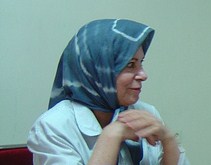You can help expand this article with text translated from the corresponding article in Esperanto. (February 2017)Click [show] for important translation instructions.
|
The Iranian Esperanto Association (Esperanto : Irana Esperanto-Asocio, IREA), founded in 1996, is the national association of the World Esperanto Association (Esperanto : Universala Esperanto-Asocio) in Iran.
The core of IREA is based on the Iranian Esperantist Youth Organization (Esperanto : Irana Esperantista Junulara Organizo) and current official organ of IREA is the journal Irana Esperantisto . [1] [2] [3]
